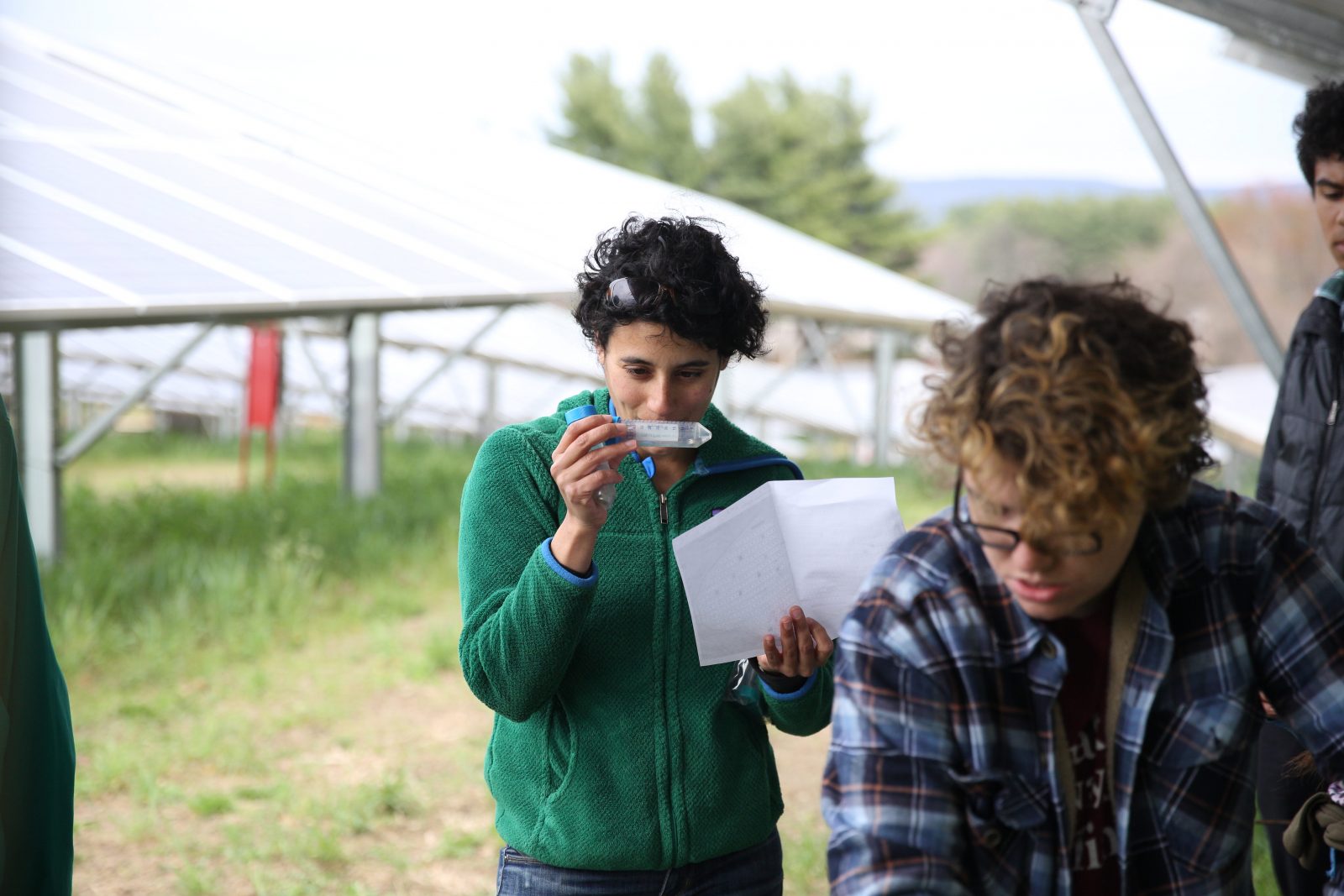Ethics and the Common Good Project (ECG) offers funding to support faculty in the development of courses that focus on conceptions and problems of ethics and the common good, as well as possible means of addressing or resolving those problems. Through these affiliated courses, ECG aims to connect Hampshire College’s five schools with our program’s mission and vision. Together, we cultivate an interdisciplinary curriculum that challenges us to bridge divides, realizing a good we hold in common.
We are particularly interested in courses that integrate community-engagement and community-based learning components in meaningful ways. This can include, but is not limited to, partnering with an on-campus program/project (i.e. the farm center, early childhood center) or an off campus community organization (i.e. pioneer valley worker center, amherst survival center), bringing off campus community partners to campus, and/or supporting students to develop on campus community engaged projects as part of the course.
All proposals will be considered.
Developing a New ECG Course
ECG is interested in supporting faculty in developing courses that focus on ethics and the common good broadly construed. We invite faculty to submit ideas for courses that focus on issues that explore or reflect on what we take to be of shared importance, value, or benefit, and which investigate possible means of response. ECG is eager to hear from any faculty member who wants to bring attention to or engagement with issues of ethics and the common good into their courses.
Grant Options
Creating a New Course for ECG: New course development grant awards include a $1000 faculty stipend and up to $1000 to support course related programming.
Augmenting a Pre-Existing Course for ECG: Individual faculty who plan to teach a course that explores ethical issues may propose ways of augmenting the course to incorporate common good themes. Augmented course grant awards include a $500 faculty stipend and up to $500 to support course related programming.
How To Apply
Any faculty on multi-year contracts or recurring one-year contracts, including but not limited to visiting and 10-year faculty, are encouraged to apply. Faculty should submit a proposal outlining ideas for either a new course or the modification of an existing one.
Applications must include:
- Project Description
Address the following in two pages:- The intellectual focus of the course, when, and at what level it will be taught (100, 200, 300)
- Relation to the mission, goals and values of the ECG project
- A description of the methodologies, theories, and literature that will be introduced
- The background and disciplinary focus each faculty member will bring to the course
- Information on any guest speakers/lecturers who will be invited to participate (indicate if they already have been invited/have agreed to participate)
- Budget with Justification for Expenses
Non-stipend expenses may not exceed $1,000 for new courses and $500 for augmented courses; allowable budget items include:- Expenses for guest speakers or community partners from outside the College (honoraria and travel costs)
- Course materials
- Field trip costs
- One Page Teaching Statement
- Sample Course Evaluations or Contact Information for a Teaching Reference
Review Process
ECG will review proposals according to the above guidelines. Preference will be given to those proposing courses that could be taught again in the future and courses that have meaningful community engagement and community based learning components. We will also make an effort to fund courses across disciplines and schools. If you have questions, or to discuss whether your course meets the ECG guidelines, please contact Javiera Benavente, ECG Program Director, at jbenavente@hampshire.edu.


